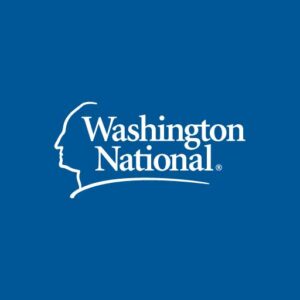
This is an advertisement and solicitation.
Q&A: Is heart and stroke insurance right for you?
Are you considering purchasing heart & stroke insurance? You may not understand why you need this coverage if you already have major medical insurance or Medicare. Check out this Q&A to learn about how it can help protect your health and financial security!
Q: What is heart & stroke insurance?
Heart & stroke insurance is a type of supplemental health insurance that’s sometimes included in workplace benefits packages. Or, you can also purchase it directly from an insurance company outside of work.
This insurance pays benefits if you face covered heart disease or must undergo certain heart-related procedures. Benefits vary from company to company, but typical the insurance benefits could include:
- Lump-sum payments upon diagnosis of heart attack and stroke.
- Inpatient hospital benefits.
- Intensive care, observation unit, extended care and hospice benefits.
- Surgical benefits payable for inpatient and outpatient treatments.
- Travel and lodging benefits.
- Wellness benefits to help you screen for heart disease.
Q: How are benefits paid?
Heart & stroke insurance is different than major medical because benefits are paid directly to you, not to doctors or hospitals. This means you can use your benefits for ANY purpose, including medical bills, living expenses and income replacement while you heal. Here’s how most policies work:
1. THE UNEXPECTED HAPPENS: You wake up one morning to troubling symptoms: chest pressure, arm pain, shortness of beath and cold sweat. You know you need to call 911.
2. YOU GO TO THE HOSPITAL: An ambulance takes you to the hospital and you’re admitted with a heart attack. You receive lifesaving surgery.
3. HEART & STROKE INSURANCE HELPS WHEN YOU NEED IT MOST: Your policy pays cash benefits directly to you. You use the money to help cover your $1,000 health insurance deductible, hospital bills from your 20% coinsurance and lost wages.
Q: Why do I need heart & stroke insurance if I already have major medical?
Oftentimes, people with heart disease face added stress because of the steep cost of treatment. Studies have shown that the average total cost of a severe heart attack can be as much as a million dollars when you account for hospital costs, medications, follow-up doctor’s visits and potential loss of wages.1 Major medical insurance covers many of your health care expenses, but not all. Most health insurance plans leave you exposed to significant out-of-pocket costs including deductibles, copayments, coinsurance and noncovered treatments. Cash benefits from heart & stroke insurance can help you cover these out-of-pocket costs so you can focus on getting better.
Q: What are the odds of actually using this coverage?
Unfortunately, heart attack, stroke and heart disease are probably more common than you realize. “Heart disease is the leading cause of death for men, women, and people of most racial and ethnic groups in the United States,” according to the CDC.2 In the U.S., someone has a heart attack every 40 seconds, and over 20 million adults have coronary artery disease.2
Should I get heart & stroke insurance?
That’s for you to decide! It may be helpful to look at your risk factors—such as your ethnicity, gender, age, genetics, health history and lifestyle factors—to gauge your risk for heart disease. Keep in mind that heart & stroke insurance is typically very affordable. The peace of mind of having a policy makes purchasing coverage worth it for many people!
We’re here for you!
Do you still have questions about heart & stroke insurance? For more information, call (800) 525-7662.
1KY3, Heart attacks can be a danger to your health and your pocketbook, https://www.ky3.com/2022/02/22/heart-attacks-can-be-danger-your-health-your-pocketbook/, February 2022.
2CDC, Heart Disease Facts, https://www.cdc.gov/heartdisease/facts.htm, 2022.
Washington National is a private company that is not Medicare, Medicaid or MaineCare and is not a governmental agency
